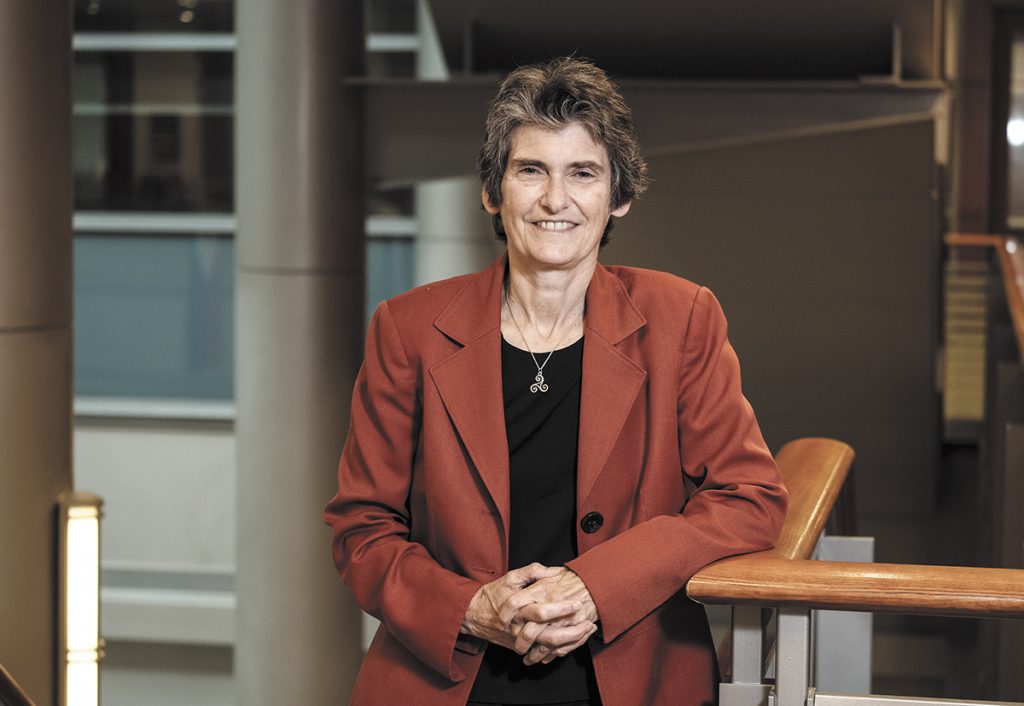Subscriber Benefit
As a subscriber you can listen to articles at work, in the car, or while you work out. Subscribe NowJanet McCabe
Professor of Practice, Indiana University Robert H. McKinney School of Law
Harvard Law School, 1983
Janet McCabe has been a tireless advocate for public health, clean air and the environment, formerly as an official in the Environmental Protection Agency before her dual roles as professor of practice at IU McKinney and as director of the IU Environmental Resilience Institute. A go-to expert on environmental issues, she recently has been a leading advocate for Hoosier children impacted by lead poisoning and has been a mentor for the next generation of attorneys with a passion for public service.
What part of your career has been most meaningful to you personally?
Although I have enjoyed every single job I have had, I have to say that working at the U.S. EPA has been the professional peak. For anyone working on clean air issues, the opportunity to work with the EPA’s outstanding career staff on policies and programs that improve air quality and public health for the entire country, and even outside our borders, would be hard to top.
What’s your advice to law students seeking a career in public service?
Keep at it. You will find that right job. And you may find yourself becoming passionate about a different issue than you were interested in at first. When I graduated from law school, I wanted to be a legal aid lawyer. But the job I got was in the Environmental Protection Division of the Massachusetts Attorney General’s Office, and that ended up being what I’ve devoted my professional life to.
What’s the biggest difference between law students graduating today and your class of 1983?
The legal profession has changed, and I think there is a lot more pressure and anxiety for students in the job market. And student debt is much more of an issue now than it was in 1983.
Do you find students are more or less interested in issue advocacy than a generation ago?
The students I teach are very interested in advocacy and eager to find jobs where they can make a difference. The student organizations at McKinney are full of students already making a difference.
What were your favorite and least favorite things about living and working in Washington?
I didn’t enjoy commuting back and forth to Indianapolis every week, though I was always glad to be home when I got here. My favorite thing was the people I got to know and work with at EPA, and the incredibly creative work we got to do together. I worked pretty much all the time, so I didn’t spend much time doing other things in D.C.
If you hadn’t pursued a legal career, what do you imagine you might be doing?
That’s a question that’s getting harder to answer as I get older. Things I might have thought about at an earlier age, being a writer or a musician, for example, I clearly don’t have the talent for. So I feel like I ended up in the right place for me.
If you could change one law, what would you do?
I would make it crystal clear that the Clean Air Act covers greenhouse gases and provides for reductions.
What do you most like to do when you have free time?
In my free time I read, do the New York Times crossword puzzle, swim and bike, and spend time with my family and cocker spaniel.
Who is someone who mentored you, and what did you learn from them?
I learned a tremendous amount about being an effective leader from my boss at the EPA, Gina McCarthy. She has an amazing talent to be direct and clear, to not take the easy answer and to always come from a place of caring about other people.•
Read more Leadership in Law profiles.
Please enable JavaScript to view this content.

